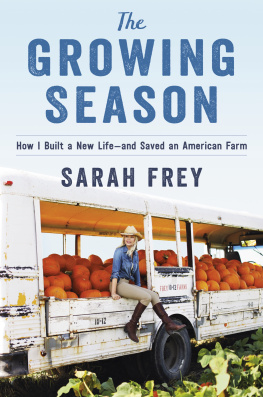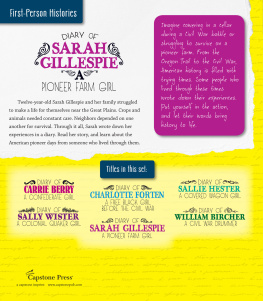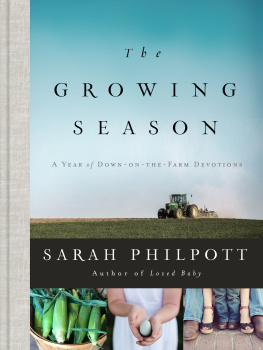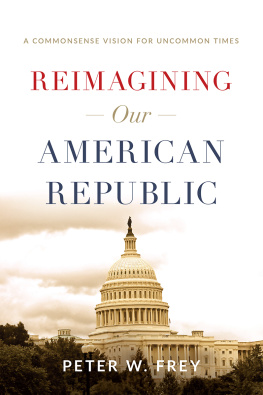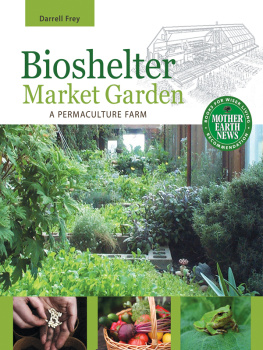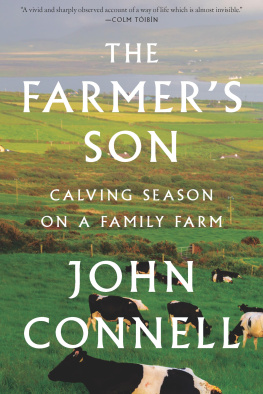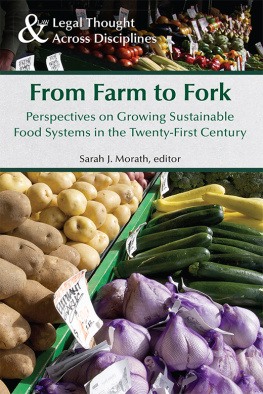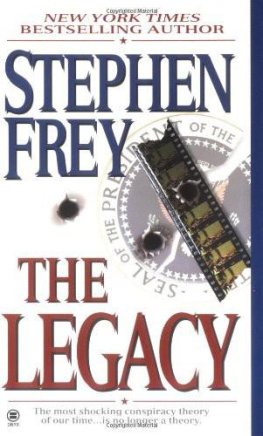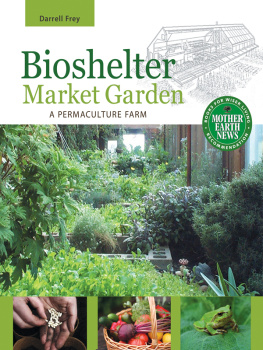Sarah Frey - The Growing Season: How I Built a New Life—and Saved an American Farm
Here you can read online Sarah Frey - The Growing Season: How I Built a New Life—and Saved an American Farm full text of the book (entire story) in english for free. Download pdf and epub, get meaning, cover and reviews about this ebook. year: 2020, publisher: Random House Publishing Group, genre: Non-fiction. Description of the work, (preface) as well as reviews are available. Best literature library LitArk.com created for fans of good reading and offers a wide selection of genres:
Romance novel
Science fiction
Adventure
Detective
Science
History
Home and family
Prose
Art
Politics
Computer
Non-fiction
Religion
Business
Children
Humor
Choose a favorite category and find really read worthwhile books. Enjoy immersion in the world of imagination, feel the emotions of the characters or learn something new for yourself, make an fascinating discovery.
- Book:The Growing Season: How I Built a New Life—and Saved an American Farm
- Author:
- Publisher:Random House Publishing Group
- Genre:
- Year:2020
- Rating:3 / 5
- Favourites:Add to favourites
- Your mark:
- 60
- 1
- 2
- 3
- 4
- 5
The Growing Season: How I Built a New Life—and Saved an American Farm: summary, description and annotation
We offer to read an annotation, description, summary or preface (depends on what the author of the book "The Growing Season: How I Built a New Life—and Saved an American Farm" wrote himself). If you haven't found the necessary information about the book — write in the comments, we will try to find it.
Sarah Frey: author's other books
Who wrote The Growing Season: How I Built a New Life—and Saved an American Farm? Find out the surname, the name of the author of the book and a list of all author's works by series.
The Growing Season: How I Built a New Life—and Saved an American Farm — read online for free the complete book (whole text) full work
Below is the text of the book, divided by pages. System saving the place of the last page read, allows you to conveniently read the book "The Growing Season: How I Built a New Life—and Saved an American Farm" online for free, without having to search again every time where you left off. Put a bookmark, and you can go to the page where you finished reading at any time.
Font size:
Interval:
Bookmark:
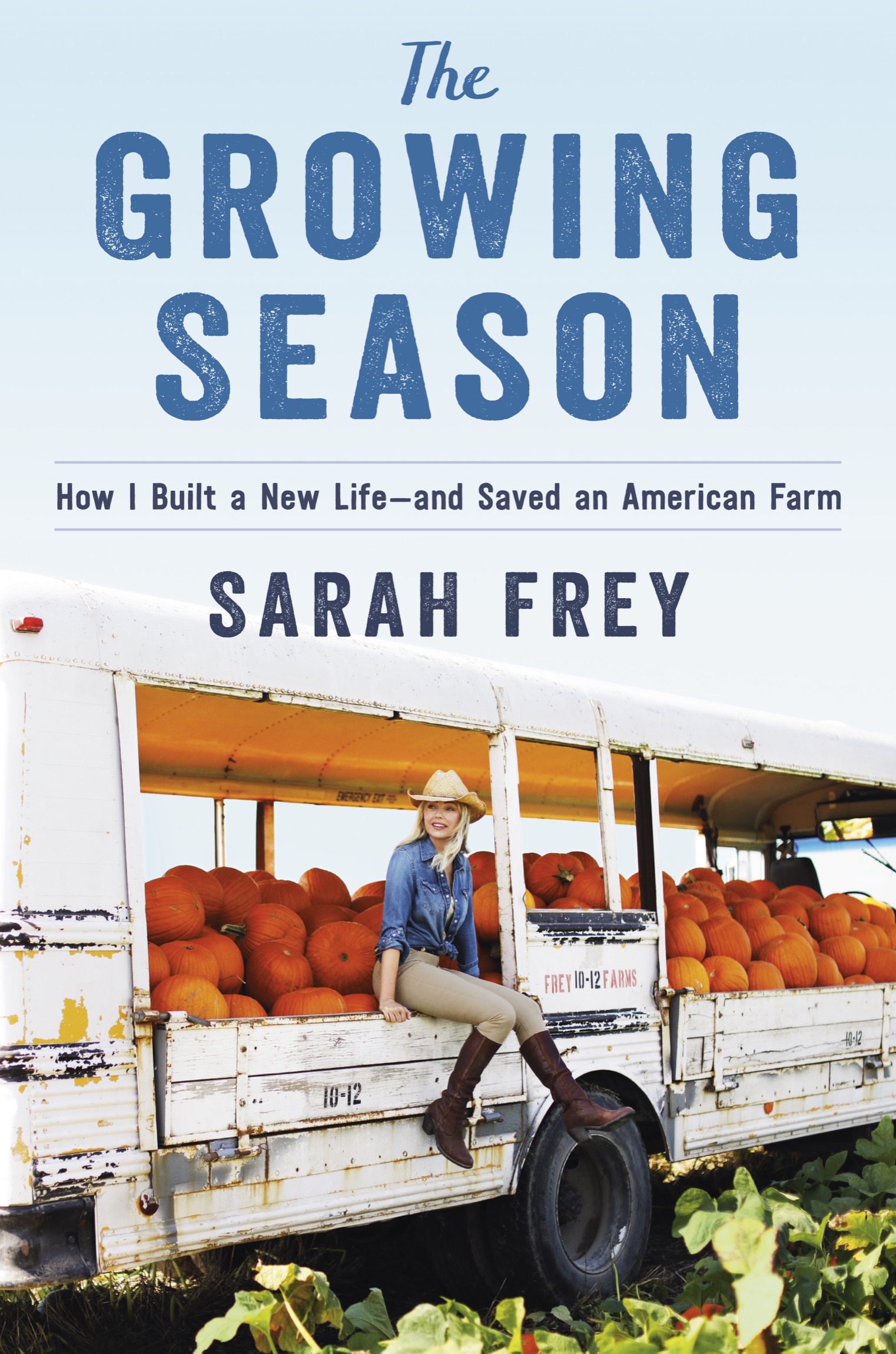
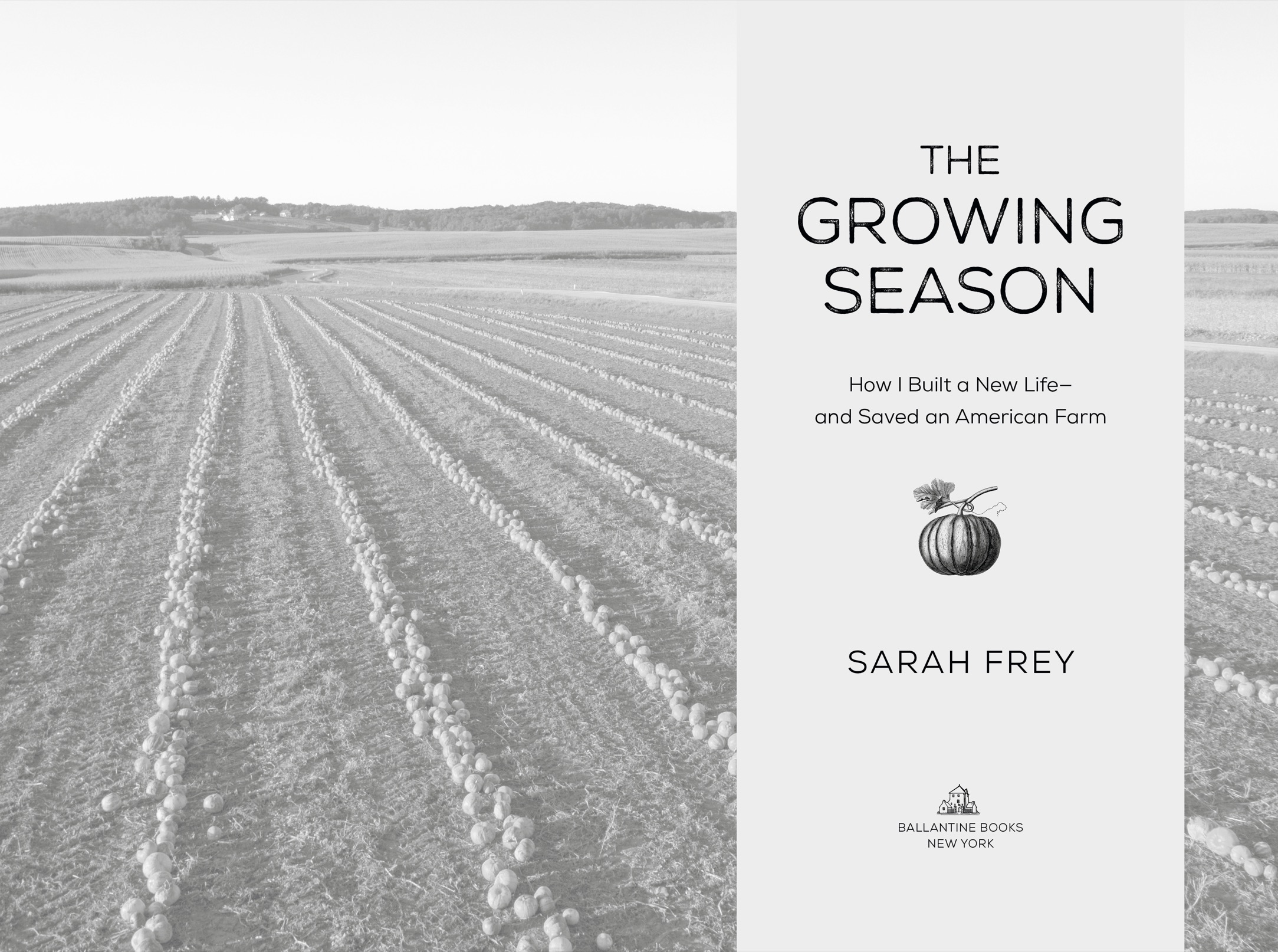
Copyright 2020 by Freyja, LLC
All rights reserved.
Published in the United States by Ballantine Books, an imprint of Random House, a division of Penguin Random House LLC, New York.
B ALLANTINE and the H OUSE colophon are registered trademarks of Penguin Random House LLC.
Library of Congress Cataloging-in-Publication Data
Names: Frey, Sarah, author.
Title: The growing season: how I built a new lifeand saved an American farm / Sarah Frey.
Description: First edition. | New York: Ballantine Books, [2020]
Identifiers: LCCN 2019048607 (print) | LCCN 2019048608 (ebook) | ISBN 9780593129395 (hardcover) | ISBN 9780593129401 (ebook)
Subjects: LCSH: Frey, Sarah. | Frey Farms. | Women farmersUnited StatesBiography. | Women chief executive officersUnited StatesBiography. | Produce tradeUnited States. | Agricultural industriesUnited States.
Classification: LCC HD9010.F74 A3 2020 (print) | LCC HD9010.F74 (ebook) | DDC 338.7/63092 [B]dc23
LC record available at https://lccn.loc.gov/2019048607
LC ebook record available at https://lccn.loc.gov/2019048608
Ebook ISBN9780593129401
randomhousebooks.com
Title page art: photo, iStock.com/SimonSkafar; illustration, iStock.com/ilbusca
Cover design: Sarah Horgan
Cover photograph: Angela Talley
ep_prh_5.5.0_c0_r1
Last night it happened again. At a cocktail party teeming with some of the most successful people in the country, a man assumed we came from the same place. I understood his mistake. On the outside, I lookedaside from being one of the few women in the roomas though I belonged. He wore a custom-made suit; I a designer skirt, blouse, and heels. He sported an expensive watch; I had on pearls. As we gazed out of the floor-to-ceiling windows over the sea of skyscrapers, we both held glasses of champagne.
The latest notches on our resumes, too, were similar. We both ran companies that earned millions a year in revenue. Im the CEOor, as I prefer to be called, the founding farmerof Frey Farms, which sells, among other things, tens of millions of pumpkins and watermelons a year. My company, which has its headquarters down the road from my childhood and current home in a tiny Illinois town called Orchardville, manages thousands of acres of farmland coast to coast.
In recent years Ive enjoyed expanding our agribusiness into the beverage and consumer packaged goods markets. Harvard Business School used one of my first major deals as a case study in the art of negotiation. If youve ever bought a melon or a pumpkin in America, chances are you are my customer. Thank you.
Where the man made a mistake was in his belief that we shared a past as well as a present. I could see him struggle to figure out where we might have intersected. Boarding school? Marthas Vineyard vacations? Ivy League college?
He asked the inevitable question: Remind me, Sarah, where you went to school. Was it Harvard Business? Wharton?
That simple, common question once terrified me. I was afraid that if I answered honestly, I would be judged unworthy, and that it would be clear to everyone instantly that I didnt belong, that the pearls and heels were a costume. At one time, whenever I was asked anything about my past, I would immediately change the subject. That way, someone like the businessman at that party could continue to assume that wed attended the same institutions of higher learning, that we had roughly the same background, that Id found my way into this room the same way he had.
Now, though, I have a new response: the truth.
I went to Frontier, I said confidently, and looked him right in the eye with a smile.
Then I took a sip of my drink and enjoyed a moment watching him silently wonder about Frontier. Was it some elite private institution? If he called the right people, could he get his kid transferred there from Columbia?
Frontier is a community college in Fairfield, Illinois, about half an hours drive from my familys farm. It offers degrees in, among other things, automotive technology, fire science, and electrical distribution systems. Its one of the top two or three Illinois Eastern Community Colleges, of which there are four. Go Bobcats.
As a child, I was a good student with dreams of heading off to a major university, just as I had seen my four older brothers do. But I was also living on my own at age fifteen and needed to make money. While I was still technically in high school, I started taking college classes at Frontier at night while also working various jobs.
At many events like the one last night, I often have the least formal education of anyone in the roomincluding the busboys. Im also often one of the youngest people there and one of the only ones who are female or from the middle of the country. I am definitely the only person there who was born into a house with no indoor plumbing, grew up skinning deer, and was driving big trucks and tractors by middle school.
When I talk about my company, I say that Frey Farms is a family businesswhich it is. But the words family farm usually provoke another round of uncomfortable questions.
First, people assume that I inherited the company: A family farm? Thats great! Did your father put you in charge? Or did your grandfather start it?
I understand how this assumption is made. I dont exactly look like the image people usually have in their heads of a farmeror a CEO, for that matter. On nights like this, I am frequently mistaken for someones wife. I come across, they tell me, as elegant and well-spoken, with a warm smile. What no one there knows is that on that very morning I was clad in grubby jeans, my unbrushed hair pulled back under a ball cap, yelling over the noise in the sorting room. No way Id be mistaken for a Wharton alum.
How much should I share about my past and my family? Thats been a tough call my whole life. When people ask, How many brothers and sisters do you have? I might give the short answer: I have four older brothers in the business.
Its not a lie. I do have four older brothers in the business.
Sometimes I open up a bit more and say, My mother had eight children. This is also technically true.
Yep! I say to their inevitable astonishment. I come from a big family.
Rarely do I admit the full truth: Including my half-siblings, Im the youngest of twenty-one.
Yes, you read that right: twenty-one.
In most rooms, its best to just talk about my four older brothers. They were, by far, the biggest influence on me. They taught me to hunt, fish, and live off the land. That knowledge gave me the confidence to believe that I could take care of myself no matter what happened. Those four know where I came from as no one else ever will.
Another thing people ask when they hear where Im from is, Youre from Illinois? I love Chicago!
Chicago is a wonderful city, I reply. But Im actually from southern Illinois.
My home turf, Wayne County, is much closer to Kentucky than it is to Chicago. It has a culture, a way of life, and a mindset that are completely foreign to people who grew up on the coasts or in any major city. Where I come from, success is measured not by your educational attainment or bank balance but by the size of your truck tires, the speed of your four-wheeler, and the variety in your gun collection. In my part of the state, there are no street signs, no lights on the roads, no stores for miles.
Font size:
Interval:
Bookmark:
Similar books «The Growing Season: How I Built a New Life—and Saved an American Farm»
Look at similar books to The Growing Season: How I Built a New Life—and Saved an American Farm. We have selected literature similar in name and meaning in the hope of providing readers with more options to find new, interesting, not yet read works.
Discussion, reviews of the book The Growing Season: How I Built a New Life—and Saved an American Farm and just readers' own opinions. Leave your comments, write what you think about the work, its meaning or the main characters. Specify what exactly you liked and what you didn't like, and why you think so.

